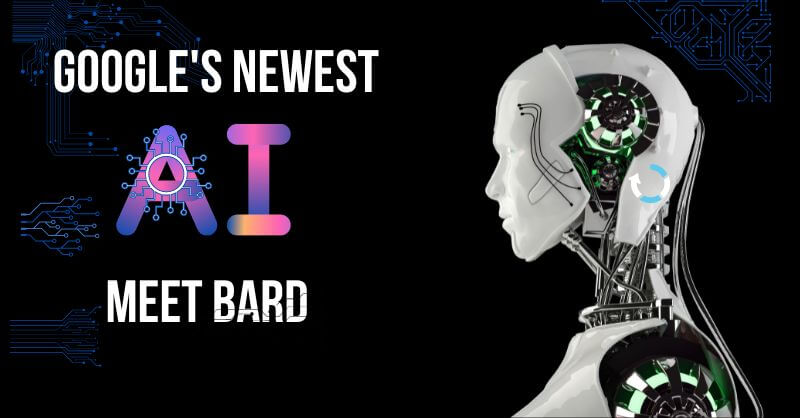Since ChatGPT was opened to the public, AI news stories are everywhere you turn. And it's no surprise that Google has its own AI programs, too. Google's Artificial Intelligence (AI) technology is revolutionizing how we think about computing. With its advanced algorithms and deep learning capabilities, Google AI can make sense of vast amounts of data to solve complex problems faster than ever. From natural language processing to computer vision and machine learning, this cutting-edge technology has enabled Google to create powerful applications to transform our lives from healthcare to transportation. By leveraging the power of AI, Google is leading a new wave of innovation that will shape how we interact with machines for years to come.
Say Hello to Bard
In a recent update from the CEO, Google introduced Bard, their latest AI foray, and, according to Google, it can be used to “simplify complex topics, like explaining discoveries from NASA’s James Webb Space Telescope to a 9-year-old.”
The Origin of AI (Artificial Intelligence)
AI computing has its origins in research conducted in the 1950s. Still, it's only been in recent years that advances in technology and computing power have enabled AI to reach its full potential. With the development of algorithms such as deep learning, machine learning, and natural language processing, Google has created powerful applications capable of tackling complex problems quickly.
Key Highlights from Google's recent AI updates
•Google re-oriented the company around AI six years ago to make information universally accessible and helpful.
• Google is releasing an experimental conversational AI service, Bard, which uses LaMDA language models for dialogue applications to combine the breadth of knowledge with large language models.
• BERT and MUM are two Transformer models that Google has used to improve Search for billions of people.
• Google is using its newest AI technologies like LaMDA, PaLM, Imagen, and MusicLM in their products, starting with Search. They will soon begin rolling out features powered by these technologies on search results pages so users can quickly understand complex topics or explore multiple perspectives more efficiently.
• Developers will be able to use a Generative Language API powered by LaMDA when it becomes available next month; partnerships with Cohere, C3 Ai, and Anthropic through Cloud services help startups scale up their efforts in building reliable systems based on AI technology safely.
The Future of AI for Business
AI search promises to revolutionize how businesses operate, allowing them to make more informed decisions faster than ever before. Companies can use AI-powered search engines to access and analyze large amounts of data in real-time, enabling them to uncover hidden insights and trends. AI technology can also be used for predictive analytics, offering companies valuable information about future customer behaviors and market trends. With its natural language processing capabilities, AI search will enable companies to understand customer queries quickly, making more personalized and accurate recommendations. As businesses continue to invest in sophisticated AI tools and systems, they are sure to benefit from greater efficiency gains and an improved understanding of their customers' needs.
The potential of AI search is immense – it will open up new opportunities in business technology that have never been possible. So what's next in AI for your business? Time will tell.



